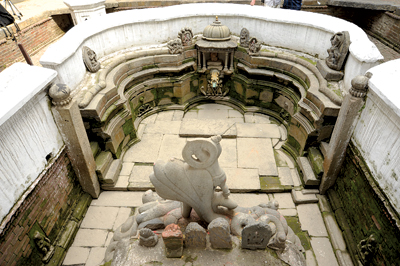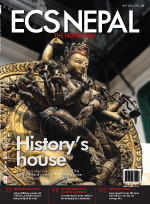Incentives work
Just a few decades ago many were fearful that the Kathmandu valley’s globally unique built heritage sites, which include the three Malla period palaces, Boudha and Swayambhu Stupas and Changu and Pashupati would continue to deteriorate and be lost forever. Today, these are being cared for and the artists who have the skills and knowledge as to how to preserve these beautiful structures are also doing better. There was a time when UNESCO even considered the removal for the Kathmandu valley heritage sites from the World Heritage List. It is really wonderful that these globally unique monuments that reflect the prosperous times in Nepal’s history are being preserved for the future. One lesson we may all benefit from in conserving other monuments and historical sites could be that we have to get the incentives right. When we have weak or transitional governments for long periods of time, compliance and enforcement mechanisms are weak. Disincentives just do not work. What really works is the sharing of benefits of conservation with local communities. This has worked in Kathmandu and across Nepal again and again. Generally humans like incentives.
 May 7th, 2012 is going to be celebrated at Lumbini, and across the world among Buddhist communities as Buddha Jayanti - the day Mayadevi gave birth to Siddhartha, at the sacred garden. The life and teachings of the Buddha have always been relevant and it is heart-warming to see wider discussions on these topics among the young. Everyone aspires to put an end to suffering and the Buddha has articulated a path that will get us to this objective. As part of the government’s Visit Lumbini Year, it may be worth planning a trip to Lumbini and the adjoining areas in the terai districts of Kapilvastu, Rupendehi and Nawalparasi to learn more about the Enlightened One.
May 7th, 2012 is going to be celebrated at Lumbini, and across the world among Buddhist communities as Buddha Jayanti - the day Mayadevi gave birth to Siddhartha, at the sacred garden. The life and teachings of the Buddha have always been relevant and it is heart-warming to see wider discussions on these topics among the young. Everyone aspires to put an end to suffering and the Buddha has articulated a path that will get us to this objective. As part of the government’s Visit Lumbini Year, it may be worth planning a trip to Lumbini and the adjoining areas in the terai districts of Kapilvastu, Rupendehi and Nawalparasi to learn more about the Enlightened One.
The world of music, young people and traditional instruments has become synonymous with Kutumba. There is a huge following everywhere they perform and each appearance is better than the last. Kutumba is now going regional and global with the core message of uniting in diversity. Kutumba has proven that music can unite people from all walks of life no matter who they are what they stand for. Music unites people everywhere and is a great – starting point to build a peaceful world.
In this issue of ECS we have once again gone after the stories that help put the amazing little pieces that come together to make the bigger picture that is Nepal. We feature people who are making a big difference in the lives of so many. We feature places you may consider taking some time out to visit and spend time learning about. We also go the extra length to find people who have valuable and unique collections that are usually not available for public viewing. We try hard to feature new forms of art and craft in each issue to promote the artists and their works. All in all we know you are going to enjoy this issue of ECS. Whatever you are doing this month, please make room for the Nepali way.






